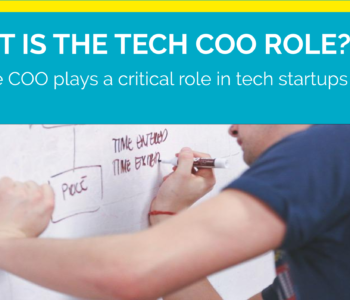 Vision to Value
Vision to Value
Starting a Tech Company for Non-Tech Co-Founders
In 2011, Marc Andreessen wrote “Software is Eating the World” a think piece detailing how companies are increasingly software driven. Today, that statement is more true than ever before. Millions of businesses launch every year and they are more likely to be tech companies than at any other time in history.
While a “tech” company might use software to drive physical production and services, sell software as a service, or fit software solutions into any of a variety of other “flavors”, they are tech driven. This is true for giants ranging from Amazon to Google to Facebook. But, while tech companies are now becoming the norm, many founders and co-founders have no real idea that they are in or are building a tech company. While that might be intimidating or might push many entrepreneurs into waiting to launch their business, it’s also increasingly a norm.
Most Tech Companies Aren’t Started by Tech People
Jeff Bezos, CEO of Amazon.com graduated with degrees in engineering and computer science. Jack Ma, founder of Alibaba, graduated with a degree in English. Airbnb was founded by two designers. The founder of Group and the founder of Pandora both have backgrounds in music. And, the founder of NerdWallet started the $500 million company after being laid off as a financial analyst. Millions of co-founders start tech companies, with no real idea of what a tech company is. But, that’s also the norm for many organizations, who are driven by people who excel at creating solutions, not at running or designing companies. In fact, 33% of S&P 500 CEOs graduate in engineering and 11% in business administration.
Running a Tech Company Requires a Shift in Mindset
Most non-tech co-founders launch a company and approach it from the perspective of a product. Your organization works to develop a minimum viable product and then bring it to market and focus on making sales. Tech companies don’t work this way. Instead, you have to treat development as an ongoing process. All business structure and operations have to be driven by long-term develop and continuous improvement.
It also changes how organizations operate, with operations, finance, customer service, sales, and HR very heavily tied into the same processes and value streams.
Making it Work
Your role in your organization will heavily depend on how many co-founders you have and what their roles are. If you’re going at it alone, it makes a lot of sense to partner with a technical person who can help bring your vision to life. If you already have a technical co-founder or don’t want one, your priorities should be building operational structure, hiring on technical people, and creating the foundations that will allow developers to build your product around that vision. In the early stages of a startup, your role has to be about getting people on board, pitching your product and vision, and creating a brand that sells your product. This will eventually include networking, pitching your product to funding, and possibly taking on a role like COO or CEO. While this will heavily depend on your organization, your role as a non-tech co-founder will be to ensure you understand how tech companies work, to support the structure enabling continuous growth, and to help the organization grow through bringing on skilled people, marketing, and earning funds.
Vision to Value is a deep dive into high-level operational structure for tech companies. With information on how to structure tech companies for continuous development and value delivery, Vision to Value is designed to help you build the foundations of a tech company.

